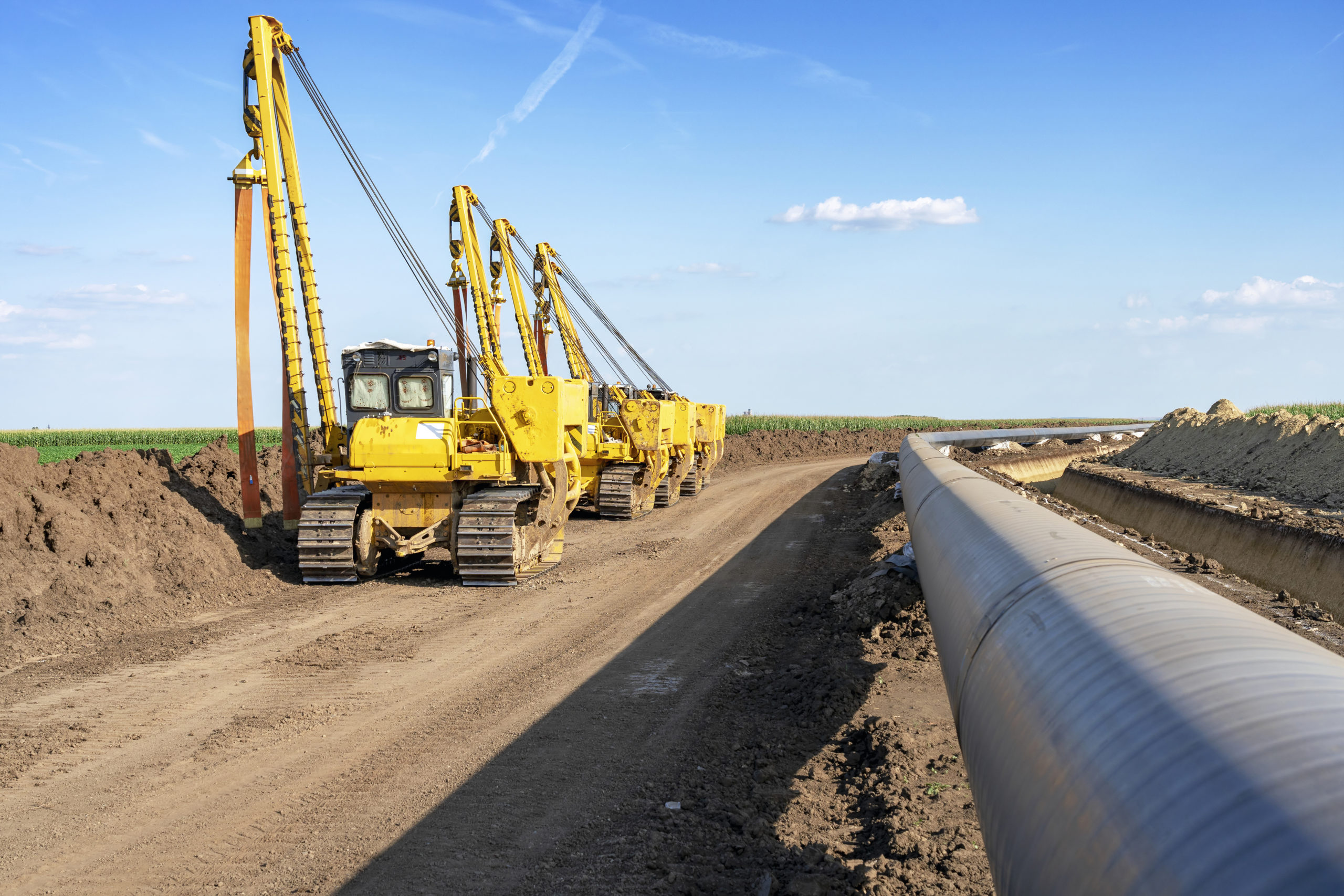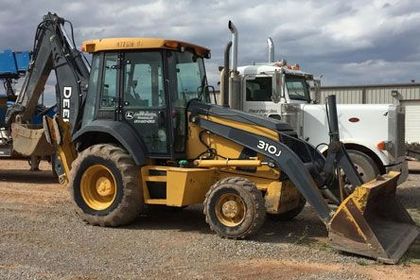Superior Oilfield Rentals oilfield: latest updates shaping drilling work
Wiki Article
A Comprehensive Guide to the Numerous Sorts Of Oil Field Equipment and Pipeline Equipment Available
The oil and gas sector counts heavily on specific tools for reliable removal and transport. Numerous kinds of machinery, from drilling rigs to storage tanks, play crucial duties in this complex process. Each tool serves unique functions that contribute to general functional success. Comprehending these components is necessary for any individual associated with the field. As the sector evolves, so too do the technologies that support it. What developments are on the horizon?
Drilling Rigs: The Foundation of Oil Exploration
Drilling rigs work as the important equipment in the domain of oil exploration, making it possible for business to accessibility hydrocarbon books buried deep beneath the Planet's surface. These rigs can be found in different types, including land rigs, offshore rigs, and mobile devices, each made to run in particular environments. Outfitted with innovative modern technology, piercing rigs can pass through geological formations with accuracy, making sure reliable source extraction. The architectural integrity and operational capacities of these rigs are important, as they must hold up against extreme problems and significant pressures. In addition, the choice of an exploration rig affects the overall task cost and timeline, making it a crucial consideration for oil firms seeking to enhance their exploration efforts and take full advantage of productivity in their procedures.Pumps: Crucial for Fluid Movement
In the oil extraction procedure, the role of pumps is considerable, promoting the movement of liquids throughout numerous stages of production. Pumps are crucial for carrying petroleum, water, and various other liquids from underground reservoirs to the surface area and after that via pipes to refineries. They can be found in numerous kinds, consisting of centrifugal, favorable variation, and submersible pumps, each serving specific purposes based upon the liquid attributes and functional demands. Centrifugal pumps are frequently utilized for their efficiency in high-flow applications, while positive variation pumps master managing viscous fluids. The choice of pump influences total performance, functional safety and security, and upkeep expenses. Appropriate selection and upkeep of pumps are vital for optimizing manufacturing and reducing downtime in oil field operations.Shutoffs: Controlling Flow and Pressure

Shutoffs play an important duty in managing the circulation and stress of fluids within oil areas and pipes. Various kinds of shutoffs serve unique applications, each designed to meet specific functions basic for effective procedure - Superior Rentals reviews. Recognizing the qualities and uses these shutoffs is important for enhancing system efficiency and safety and security
Types of Valves
Vital components in oil field operations, shutoffs play a crucial function in regulating the flow and pressure of liquids within pipes and equipment. Different kinds of valves are used to fulfill the diverse demands of oil and gas manufacturing. Common types include gateway valves, which provide a straight-line flow and very little stress decline; world valves, known for their throttling abilities; and sphere shutoffs, acknowledged for their fast on/off control. In addition, check valves avoid backflow, while butterfly valves provide a light-weight option for controling flow. Each valve type is created with details products and arrangements to endure the severe conditions usually found in oil fields, guaranteeing dependability and effectiveness in procedures. Recognizing these kinds is critical for effective system management.Valve Applications and Features
While various sorts of valves serve distinct functions, their key applications revolve around managing flow and pressure within oil and gas systems. Valves such as entrance, globe, and round shutoffs manage liquid movement, guaranteeing peak performance and safety. Gate shutoffs are typically made use of for on/off control, supplying marginal circulation resistance. Globe valves, on the various other hand, offer specific flow law, making them suitable for strangling applications. Round valves are preferred for their quick procedure and tight sealing capabilities. Furthermore, pressure safety valve are critical for avoiding system overpressure, guarding tools integrity. In general, the suitable choice and application of valves enhance functional efficiency, ensuring the reputable transportation of oil and gas via pipelines and handling centers.Compressors: Enhancing Gas Transport
Compressors play an essential role in the efficient transport of all-natural gas, making certain that it moves efficiently with pipelines over fars away. These gadgets enhance the stress of gas, allowing it to overcome friction and elevation changes within the pipeline system. Additionally, compressors facilitate the harmonizing of supply and demand, suiting changes in intake and manufacturing rates. Different types of compressors are employed in the sector, including centrifugal, reciprocating, and rotating screw compressors, each offering unique benefits based on the operational requirements. Normal upkeep of these compressors is necessary to take full advantage of performance and lessen downtime, ultimately adding to a reputable gas transport network. Their important function highlights the value of compressors in the total oil and gas infrastructure.Storage Tanks: Safe and Efficient Liquid Monitoring
Effective transport of gas counts on various supporting systems, among which is the appropriate administration of storage space containers. These storage tanks play an essential role in safely consisting of liquids, making sure that functional performance is maintained while reducing environmental dangers. Created from resilient materials, they are made to endure high stress and corrosive elements. Correctly sized and purposefully situated, storage space tanks promote the smooth circulation of all-natural gas and other liquids, protecting against bottlenecks in supply chains. Regular maintenance and tracking are imperative to identify leaks or architectural concerns, advertising safety and security and conformity with governing standards. Eventually, the effective monitoring of storage containers is essential for the general integrity and integrity of the oil and gas industry's liquid handling systems.
Pipeline Solutions: Framework for Transport
Pipeline systems function as the foundation of the oil and gas market, helping with the efficient transport of hydrocarbons over large ranges. These systems include different components, consisting of pipes, shutoffs, pumps, and compressors, all carefully made to ensure smooth flow. The products used in pipeline building, frequently steel or high-density polyethylene, are chosen for sturdiness and resistance to deterioration. Pipeline networks can span across land and water, attaching production sites to refineries and circulation. Additionally, advanced modern technology allows real-time surveillance of flow rates and stress degrees, enhancing functional performance. The tactical positioning of these pipelines lessens environmental effect while taking full advantage of source availability, therefore playing a vital duty in meeting power demands worldwide.Safety Equipment: Guaranteeing Employee and Environmental Management
The operation of pipeline systems, while crucial for energy transport, also provides significant security obstacles for employees and the atmosphere. Security equipment plays a considerable role in reducing these threats. Personal protective devices (PPE) such as headgears, handwear covers, and non-slip footwear safeguards workers from physical dangers. Additionally, gas discovery systems monitor for leaks, guaranteeing that unsafe compounds do not position a risk to employees or the surrounding ecological community. Emergency shutdown systems are critical for quickly stopping procedures during a dilemma, protecting against prospective calamities. Spill containment materials, including absorbents and barriers, are essential for decreasing ecological influence. On the whole, purchasing comprehensive safety equipment is crucial for preserving operational integrity and safeguarding both workers and the setting in the oil and gas industry.
Frequently Asked Inquiries
How Do I Pick the Right Oil Field Equipment for My Task?
Choosing the ideal oil field devices involves reviewing project specs, budget restrictions, and functional demands. Take into consideration aspects such as tools reliability, compatibility with existing systems, and the provider's track record to guarantee peak performance and safety and security.What Are the Upkeep Needs for Oil Field Equipment?
Upkeep requirements for oil field tools include regular assessments, lubrication, and prompt fixings. Operators ought to additionally stick to producer guidelines, screen performance metrics, and assurance Superior Oilfield Rentals Texas conformity with safety regulations to enhance durability and performance.
How Can I Guarantee Compliance With Environmental Regulations?
To ensure compliance with ecological regulations, business must carry out regular audits, carry out best methods, purchase training, maintain appropriate documents, and stay upgraded on legislation (Superior Oilfield Rentals). Partnership with ecological agencies can also improve adherence to lawsWhat Is the Average Life Expectancy of Pipeline Equipment?
The typical life-span of pipeline equipment usually varies from 20 to half a century, depending on elements such as material high quality, ecological problems, and upkeep practices. Routine assessments can substantially influence longevity and operational effectiveness.Exactly how Do I Securely Deliver Oil Field Equipment to Remote Locations?
Transporting oil field equipment to remote locations needs cautious planning, consisting of path evaluation, safeguarding authorizations, making use of ideal vehicles, and ensuring safety protocols are followed. Appropriate training and communication among crews are vital for successful transportation.Report this wiki page